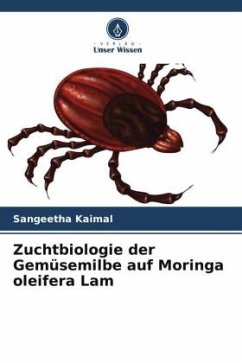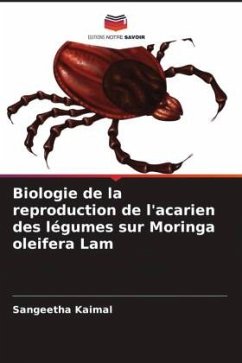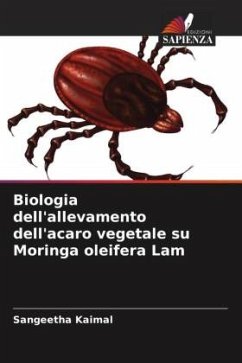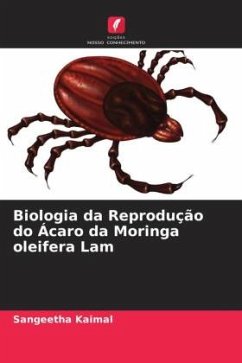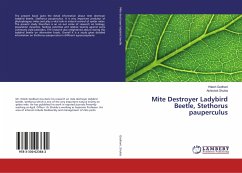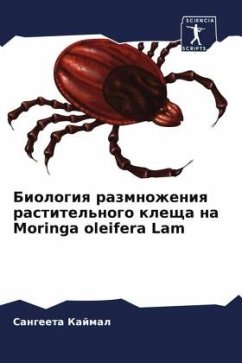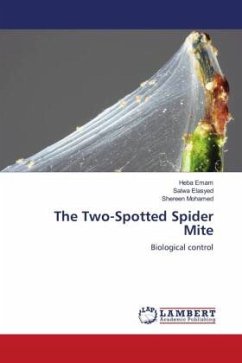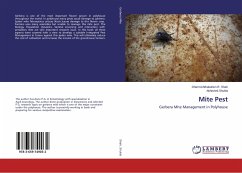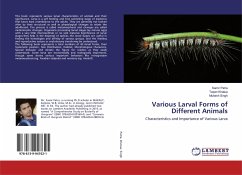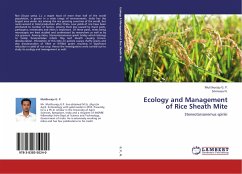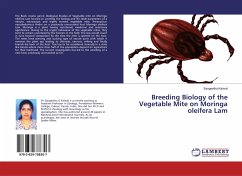
Breeding Biology of the Vegetable Mite on Moringa oleifera Lam
Versandkostenfrei!
Versandfertig in 6-10 Tagen
36,99 €
inkl. MwSt.

PAYBACK Punkte
18 °P sammeln!
The Book review genre: Biological Studies of Vegetable mite on Moringa oleifera Lam focuses on unveling the biology and life table parameters of a minute, microscopic and highly invasive vegetable mite, Tetranychus neocaledonicus Andre on a previously unrecorded host Moringa oleifera Lam. Moringa is a plant having nutritional, medicinal and veterinary significance. Owing to the cryptic behaviour of the vegetable mites, they tend to remain unnoticed by the farmers in the field. The loss would count in tune beyond comparison by the time the mite is spotted on the host. The mites have piercing an...
The Book review genre: Biological Studies of Vegetable mite on Moringa oleifera Lam focuses on unveling the biology and life table parameters of a minute, microscopic and highly invasive vegetable mite, Tetranychus neocaledonicus Andre on a previously unrecorded host Moringa oleifera Lam. Moringa is a plant having nutritional, medicinal and veterinary significance. Owing to the cryptic behaviour of the vegetable mites, they tend to remain unnoticed by the farmers in the field. The loss would count in tune beyond comparison by the time the mite is spotted on the host. The mites have piercing and sucking type of mouth parts with which it removes the plant sap leading to chlorosis, necrosis, wilting and finally branch die back of the host. This has to be considered seriously in a state like Kerala where more than half of the population depend on agriculture for their livelihood. The current investigation has led to the unveiling of a new host, previously unrecorded so far.



